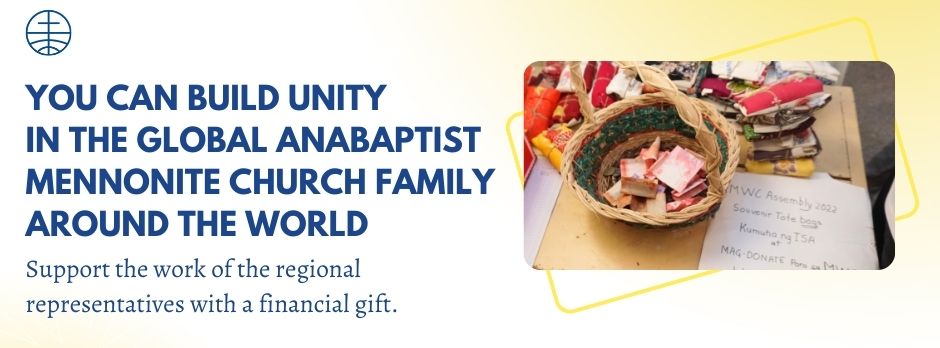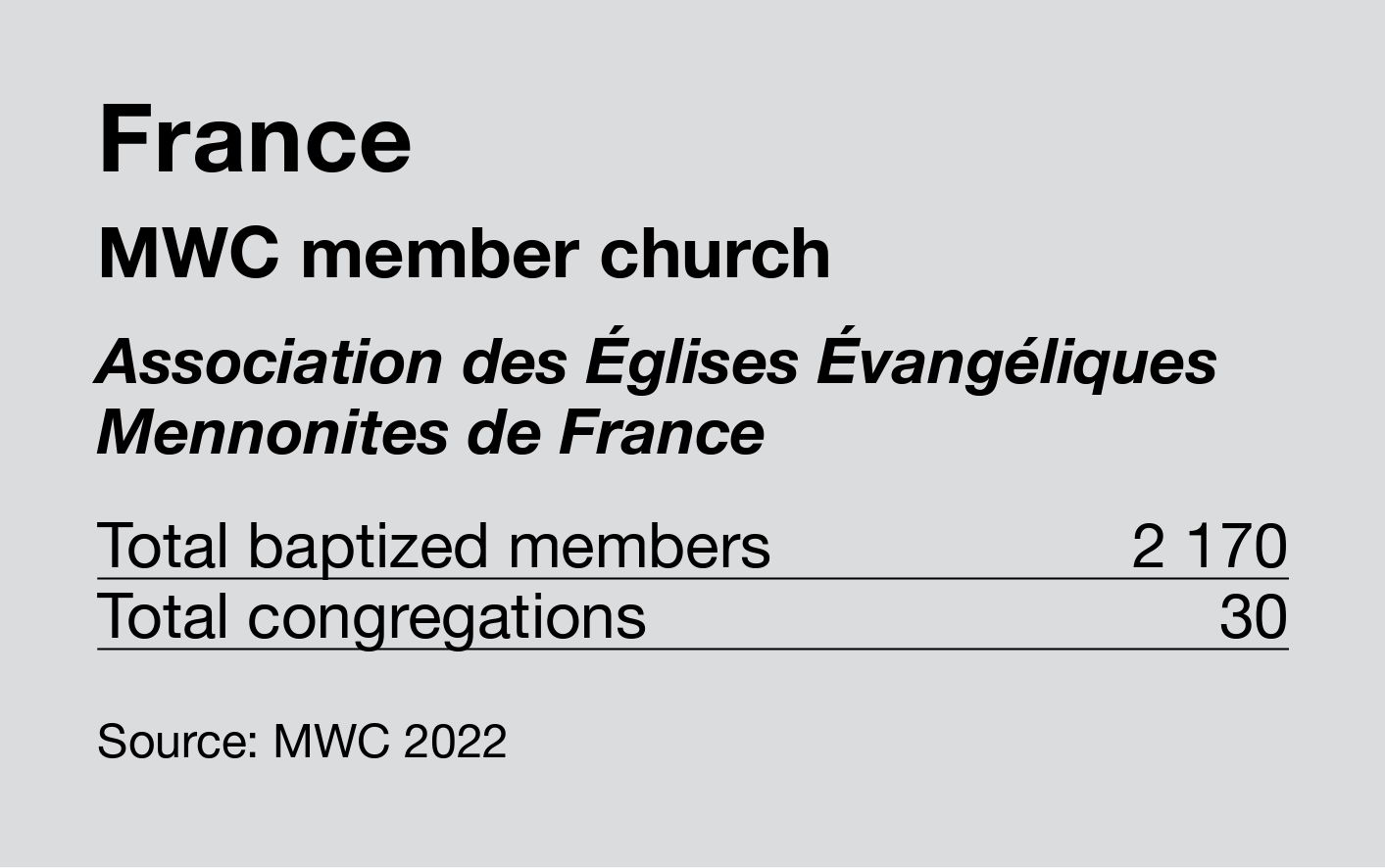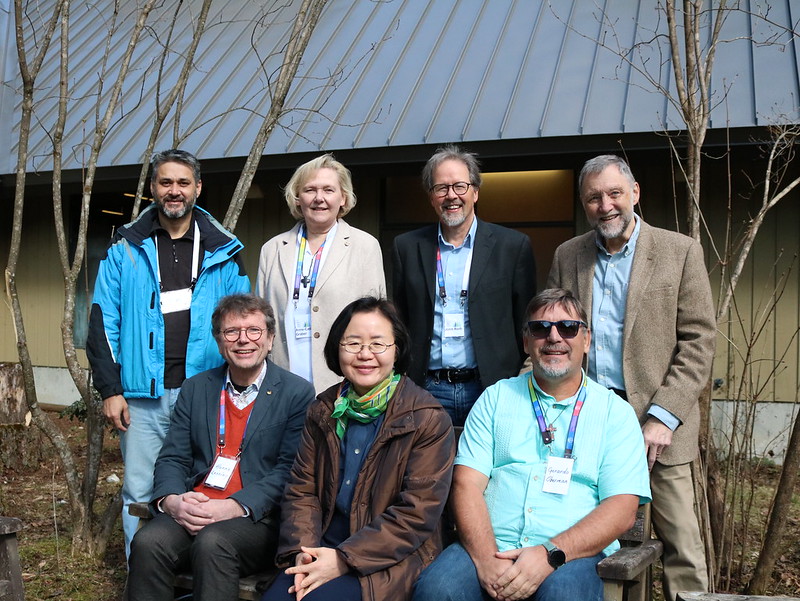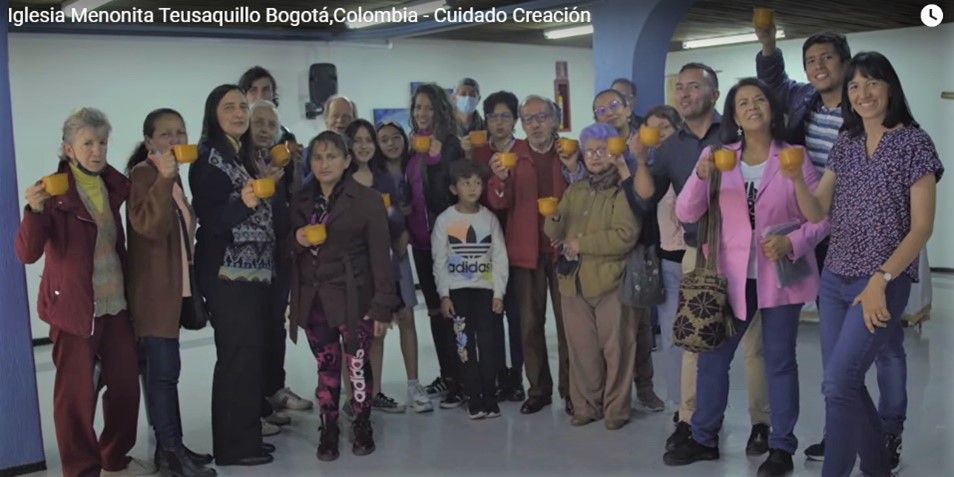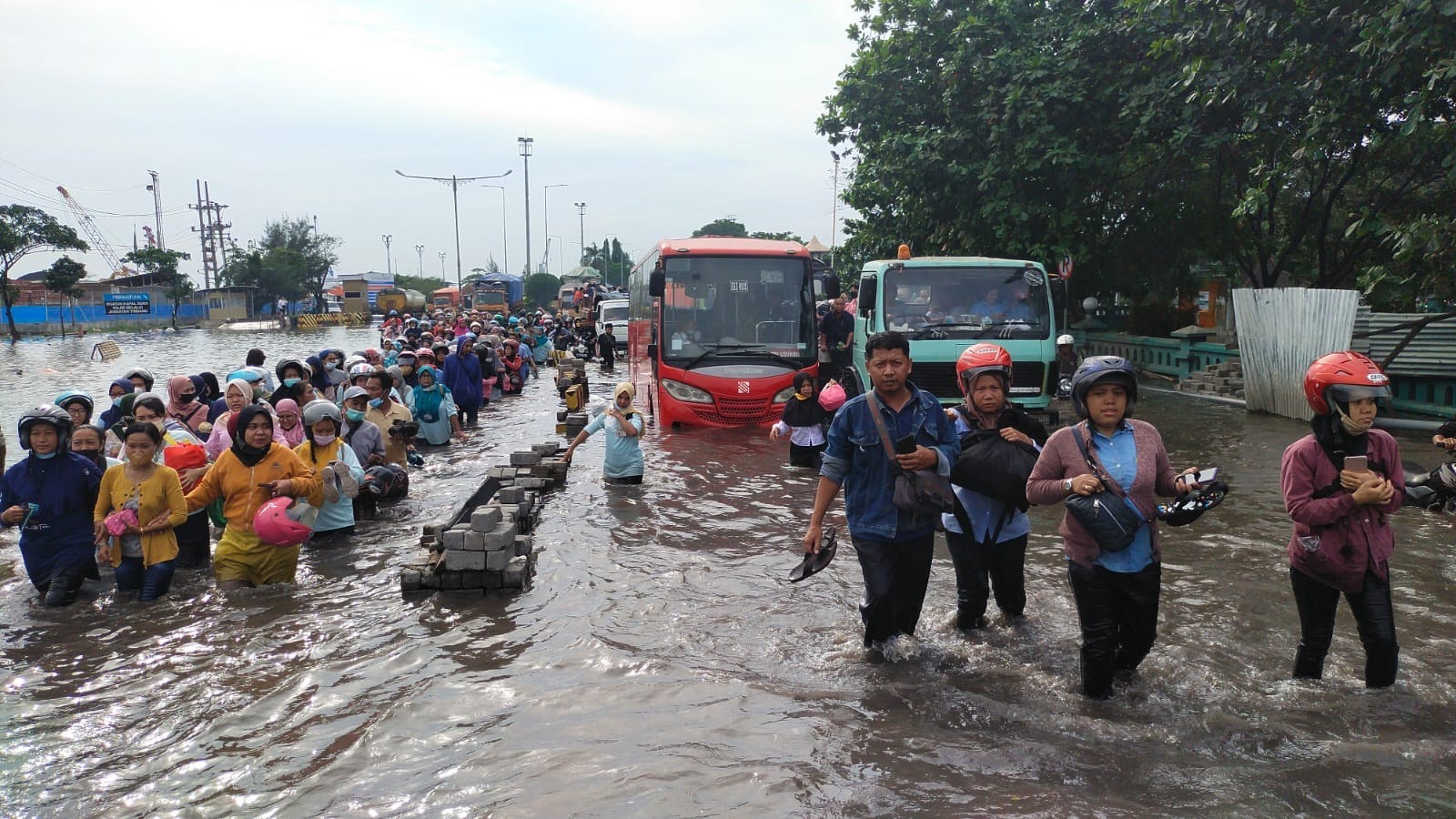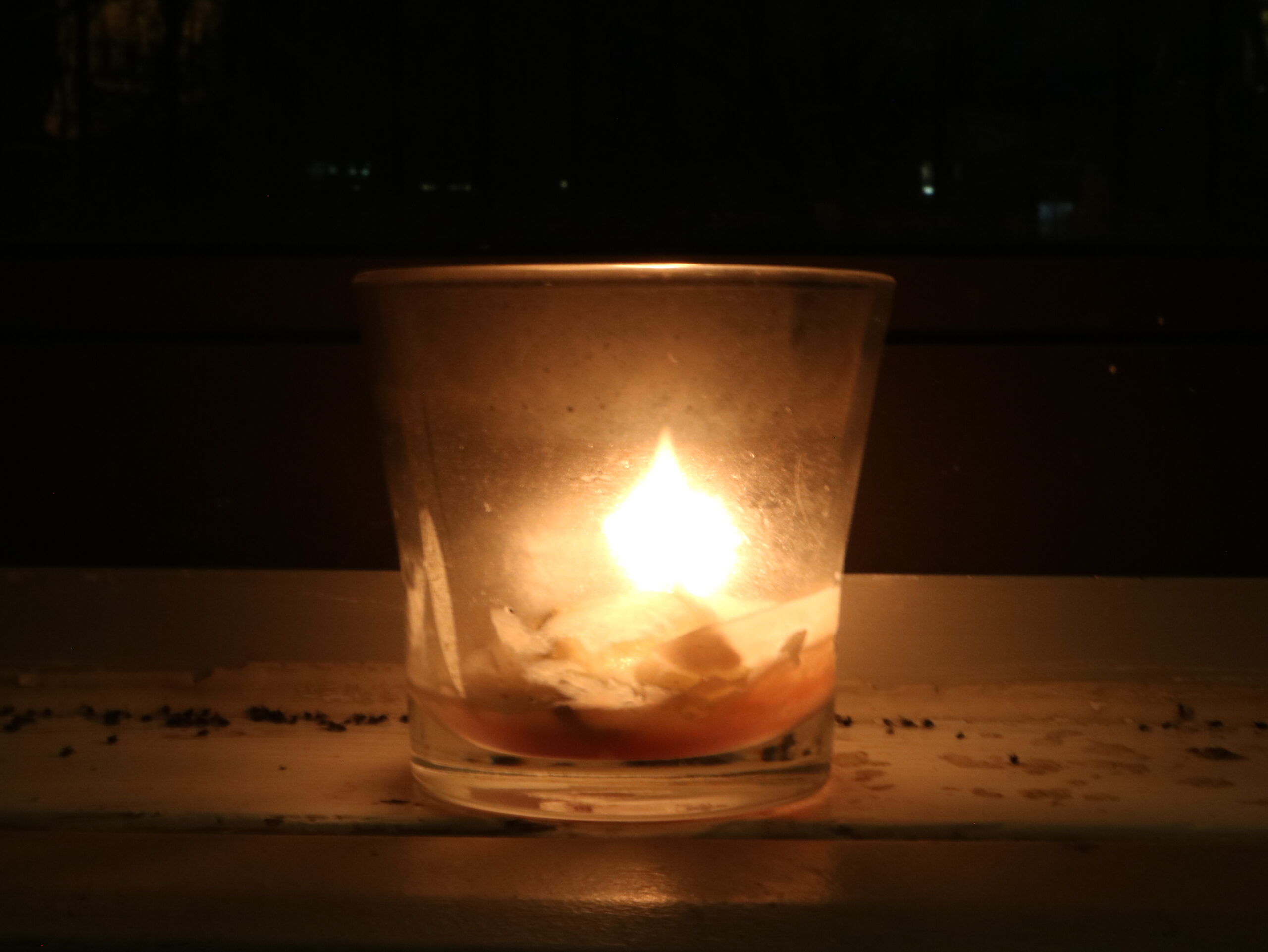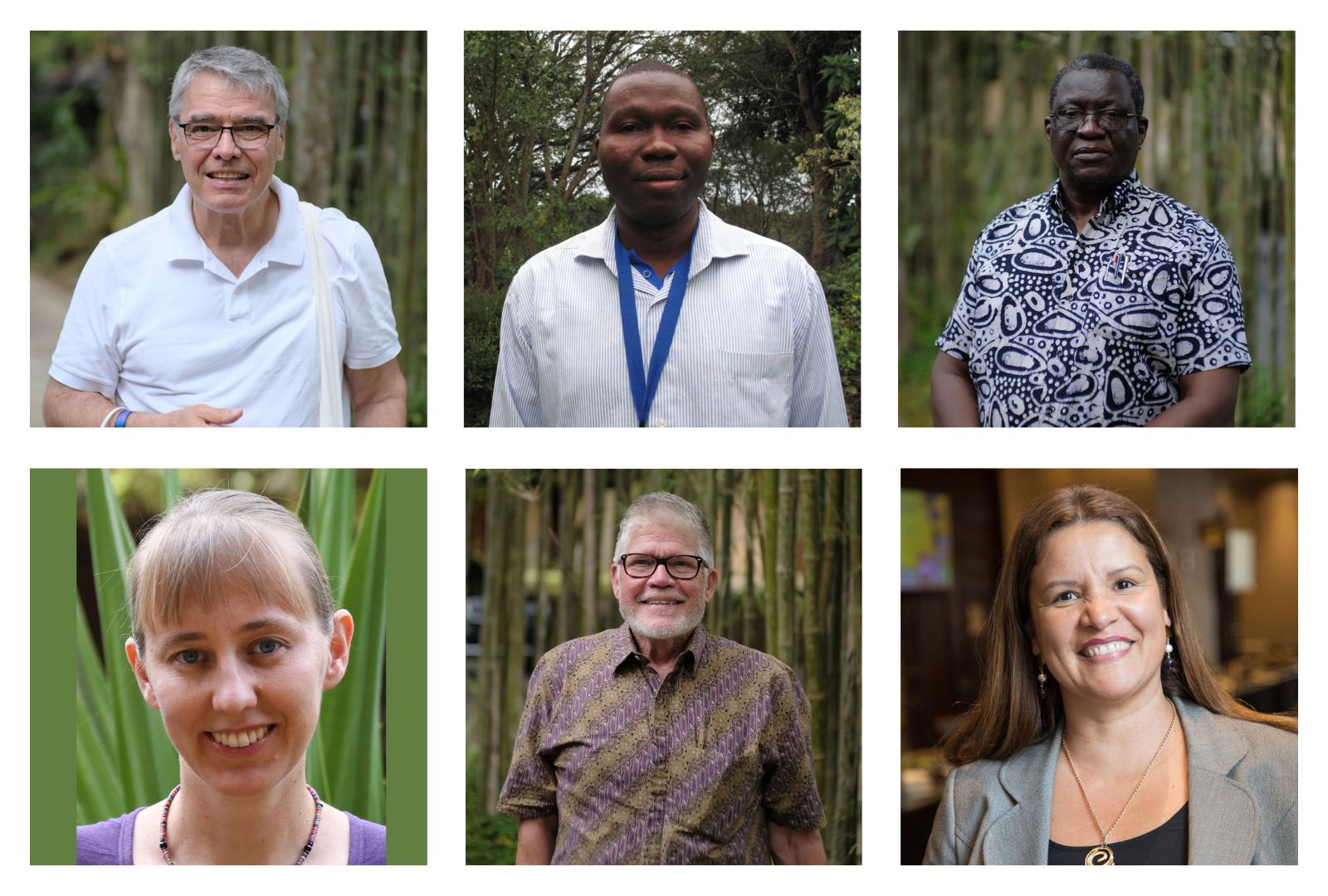-
New ways of being the church
“The pandemic has challenged churches to look for new ways of being the church – especially as we exist in a multi-religious society as a minority,” says Cynthia Peacock, regional representative for Southern Asia. As an MWC regional representative, she relates to 350 local congregations, mainly through the nine national member churches in India and
-
Mennonite faith through history
The history of Mennonites in France goes back to the beginnings of Anabaptist history. There were Anabaptists in Strasbourg by around 1526. They were quickly forced to operate clandestinely, but an Anabaptist presence would continue in Alsace throughout the 16th century.
-
A witness to the gospel together
One city, one decade, two movements, 500 years. Today, representatives of Mennonite World Conference (MWC) have embarked on dialogues with representatives of the World Communion of Reformed Churches (WCRC), a movement that also arose in Zurich in the 1500s. Four MWC representatives and three WCRC representatives began dialogues at Camp Squeah, B.C., Canada, for several
-
The taste of generosity
As frequently as once a week, a welcome visitor shows up at the Mennonite World Conference (MWC) office in Kitchener, Ontario, Canada, bearing gifts. “Pie man” Tim Sauer’s gifts involve strawberries, grapes, rhubarb, apples, sour cherries – and cheques. “I could never have been a preacher; I don’t have a good singing voice; [making pies]
-
Refusing to be a victim and an offender
It was one of the passages narrating the week of Jesus’ passion that first led SangMin Lee to consider the way of peace. Soon after he became a Christian, Lee was moved by Jesus’ teaching to love our enemies, especially his rebuke to Peter for defending him with a sword in the Garden of Gethsemane.
-
Teach the gospel and hold the faith
In 21 January 1525, a dozen or so men slowly trudged through the snow. Quietly but resolutely, singly or in pairs, they came by night to the home of Felix Manz, near the Grossmünster, Switzerland. The chill of the winter wind blowing off the lake did not match the chill of disappointment that gripped the…
-
Prayer requests YABs Fellowship Week 2023
Young Anabaptists from around the world share concerns and joys for communal prayer. Latin America El Salvador That we may give priority and recognize the importance of our relationship with God and the service to others, instead of thinking only of ourselves. That we can make a noticeable difference in our society; that we can
-
Equipping our church to care for creation
Colombia Now Israel, what does the Lord your God desire from you? … love him, serve him with all your heart and in all your life, and observe his commands… You see, What does it mean to worship God and to walk in his ways while keeping in mind that “the heavens and the earth
-
Love in a time of climate change
Indonesia I cannot forget the high tide flooding of 23-25 May 2022. As pastor of GKMI Sidodadi in Semarang in Central Java province, Indonesia, I still recount the anxieties and panic of the community. Our church building is just 10 minutes’ walk from Tanjung Mas Seaport from where the flood came. Seawater ran down
-
Is this climate change?
Canada Early in January I took my kids to our local indoor ice rink to skate. The place was packed, and people were frustrated. All-tosoon we were shooed off the ice to make way for an afternoon hockey game. The one-hour public skate was clearly not enough to meet the community’s need. It wasn’t until
-
Pastoral letter regarding persecuted Anabaptists
My flesh and my heart may fail, but God is the strength of my heart and my portion forever. (Psalm 73:26) Beloved sisters and brothers: An MWC member church in an African country is not recognized by the government and thus operates in difficult circumstances. Recently, the BBC reported that a pastor from this MWC
-
A “capital C” church worldwide
Surrounded by the beauty of God’s creation, Mennonite World Conference’s Executive Committee (EC), regional representatives, YABs Committee, senior staff and development volunteers met at Camp Squeah in British Columbia, Canada, for annual governance deliberation. The joy of gathering in person after the pandemic years of Zoom meetings was tempered by sadness over Executive Committee members
